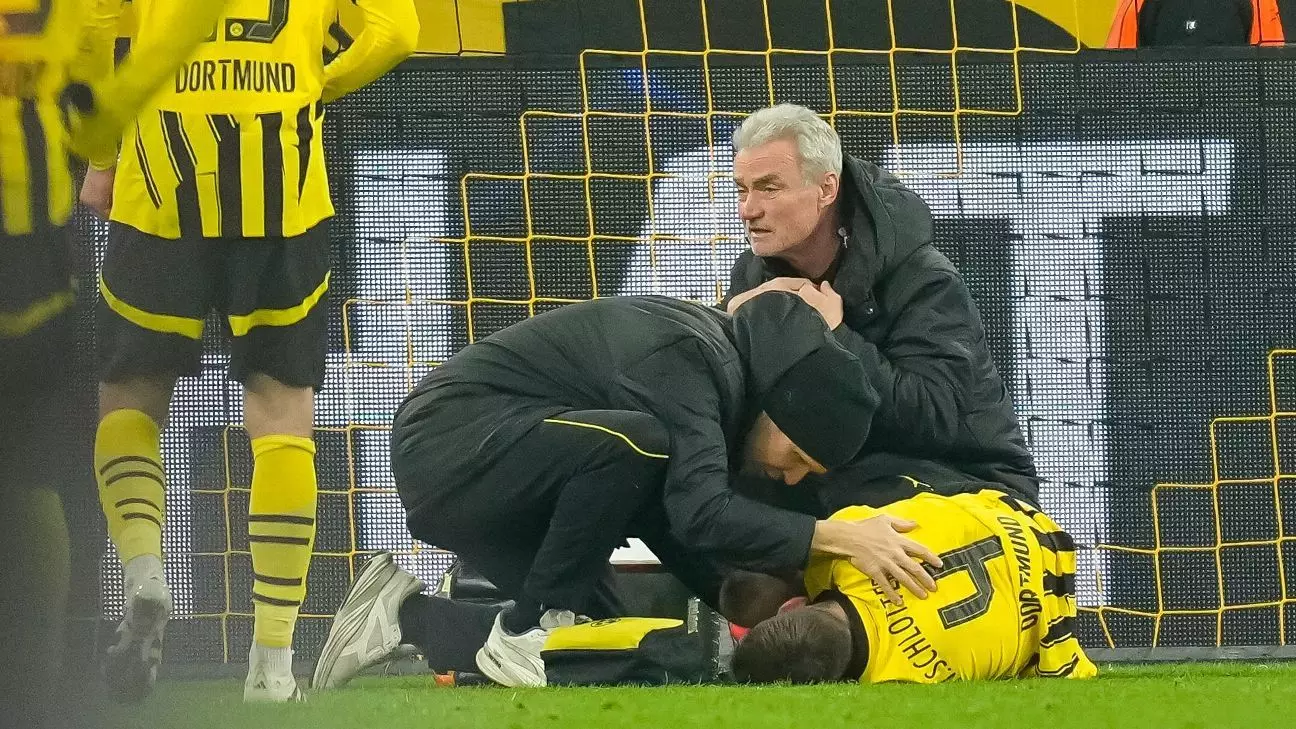Borussia Dortmund faced a challenging evening in the Champions League as they succumbed to a narrow 3-2 defeat against Barcelona. However, this match was overshadowed by a traumatic injury to central defender Nico Schlotterbeck, whose departure on a stretcher not only deepened the team’s woes but also spotlighted the precarious state of their defense. Schlotterbeck’s injury appears to be significant, resulting in concerns that he may join the growing list of players sidelined with injuries, which is particularly distressing for a team that had high aspirations this season.
As the final whistle blew, the ramifications of Schlotterbeck’s injury became painfully clear. He had already been filling in for fellow central defenders Niklas Süle and Waldemar Anton, both of whom are recovering from their own serious injuries. This forced Dortmund to field an unorthodox defensive pairing, with midfielder Emre Can stepping into a central defensive role. The lack of depth in the defense, exacerbated by Schlotterbeck’s misfortune, poses a significant challenge to Coach Nuri Sahin, who now faces the daunting task of rallying his squad under increasingly adverse conditions.
In his post-match comments, Sahin expressed disappointment not only with the injury but also with the team’s performance against Barcelona. He emphasized the need for improvement, stressing that they “deserved more” from the match. Dortmund’s current league standing, being sixth in the Bundesliga and dropping to ninth after the loss, highlights the importance of addressing these issues promptly if they hope to regain a spot in European competition.
The psychological impact of such injuries extends beyond the playing team and can affect morale considerably. Schlotterbeck’s evident distress as he was carried off, covering his face in anguish, speaks volumes about the mental challenges athletes face when confronted with injury setbacks. Coach Sahin noted that Schlotterbeck was “obviously in low spirits,” underscoring the feeling of helplessness players experience when they cannot contribute to their team’s objectives. This emotional strain can hinder team unity and performance, especially as players grapple with their own vulnerabilities.
With upcoming matches against Hoffenheim and Wolfsburg, the pressing question remains: how will Dortmund cope with their depleted squad? These fixtures are critical for the team to not only steer clear of a downward spiral in the league but to also reinvigorate their squad ahead of the winter break. The path forward will demand resilience and adaptability, qualities that will be essential if they are to navigate through this turbulent phase successfully.
Ultimately, the situation demands not just tactical adjustments but also strong leadership to foster a culture of resilience. As Borussia Dortmund soldiers on through this injury-laden season, it remains to be seen whether these challenges can transform into a catalyst for growth and improvement.

